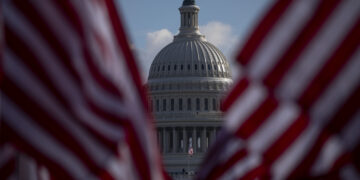November 22, 2023
How should the West respond to China’s challenge to the rules-based international order?

In recent years, the China’s leaders have intensified its criticism of the rules-based international order, labeling it as a tool of Western dominance designed to suppress the rise of alternative global powers. While the concerns of the Chinese Communist Party about this system should not be dismissed entirely, its critique often overlooks its own shortcomings and serves as a smokescreen for its ambitions to reshape the global order in its own image.
The CCP’s critique of the rules-based international order (RBIO) often centers on the concept of human rights, alleging that these universal principles are selectively applied to serve Western interests. While no nation, including those in the West, has a perfect human rights record, China’s own record is particularly troubling, marked by widespread suppression of dissent, arbitrary detention and systematic violations of fundamental freedoms.
The RBIO, with all its imperfections, has played a crucial role in promoting peace, prosperity, and respect for human rights. Established after the Second World War, institutions like the World Bank, the International Monetary Fund and the United Nations have contributed significantly to improving the lives of millions around the world, regardless of their nationality or political system.
China’s engagement with the RBIO has been characterized by a selective adherence to rules, a willingness to subvert norms when it suits its interests and a disregard for international law when it conflicts with its national objectives. This behavior is evident in its approach to the World Trade Organization, from which it has reaped significant benefits while simultaneously engaging in unfair trade practices and intellectual property theft.
More on Asia

Featuring Dan Caldwell
July 13, 2025

By Jennifer Kavanagh and Dan Caldwell
July 9, 2025

Featuring Jennifer Kavanagh and Dan Caldwell
July 9, 2025

Featuring Lyle Goldstein
July 4, 2025





